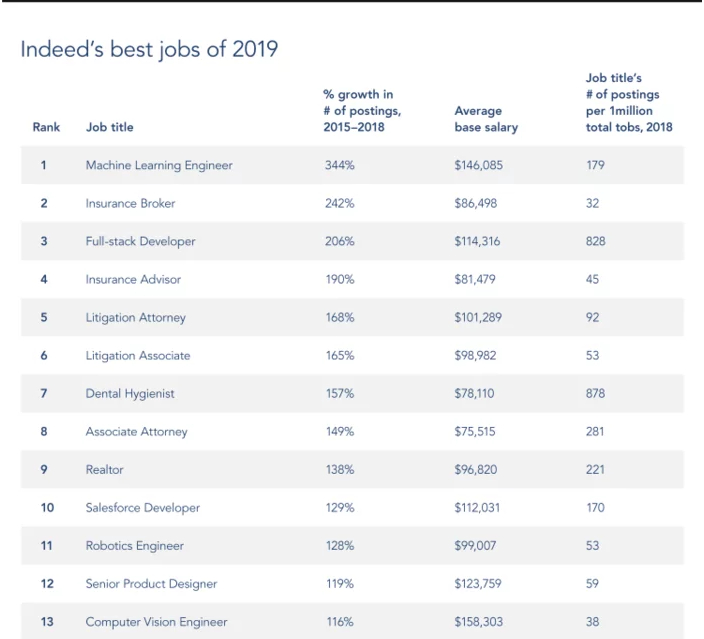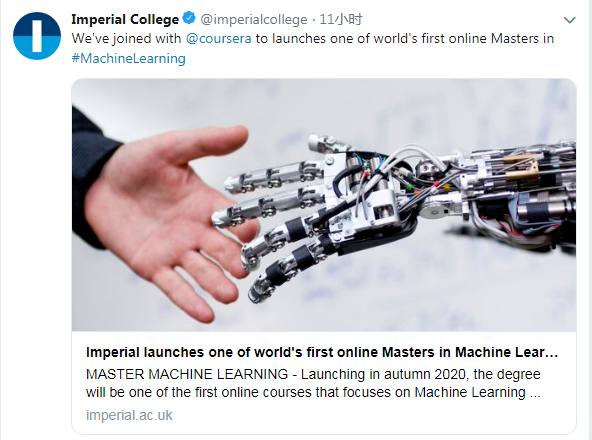
Education
16:24, 27-Mar-2019
Master's degrees in machine learning option amid explosive job demand
By Pan Zhaoyi

What is the best job in 2019? Which fields are the most attractive one for job hunters?
Indeed.com, a popular U.S-based job search site, recently published its annual "best jobs list" based on certain criteria including career promotion and annual salary.
Among the wide range of industries, posts in technology sectors stand out with machine learning engineer (ML) ranked at the top, up from fourth place last year.

Screenshot from the Indeed.com
Screenshot from the Indeed.com
With an average salary base of 146,085 U.S. dollars and a whopping 344-percent growth in job postings, machine learning engineer is an extremely promising position, according to Indeed's findings.
The trend of pursuing an ML-related degree has become obvious for many undergraduates with a science background.
In response to increasing demand, colleges and universities around the world are rushing to offer ML courses and programs.
On Tuesday, Imperial College London, a top university, announced an online MSc in Machine Learning on the online learning platform Coursera, aiming to help students pursue the most advanced engineering roles in artificial intelligence (AI), data science, machine learning, bioinformatics and more.

Screenshot from Twitter
Screenshot from Twitter
"This advanced degree will train learners in the computational, mathematical, and statistical foundations of machine learning with a curriculum concentrated on areas such as supervised and unsupervised learning, applied programming, and statistical modeling," said Professor Emma McCoy, a mathematics professor at Imperial College London.
"Students will have the opportunity to work with industry-standard tools like PySpark and PyTorch to develop and apply their machine learning and data science skills," she added.
Online courses have long been considered an effective method to reduce inequalities in China.
In 2018, the Chinese government announced a list of 801 recommended online courses to supplement school education as well as contribute to education equity.
The subjects vary greatly from traditional science subjects such as physics and chemistry to some vocational training courses like dentistry and veterinary medicine.
For many who have no access to educational resources or cannot afford higher education, studying online has offered them a whole new world.

SITEMAP
Copyright © 2018 CGTN. Beijing ICP prepared NO.16065310-3
Copyright © 2018 CGTN. Beijing ICP prepared NO.16065310-3